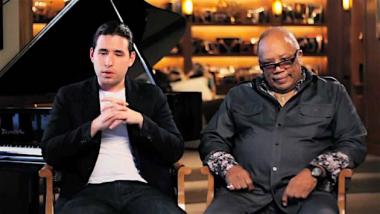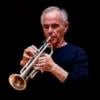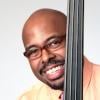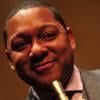
“I always have the accent,” says Alfredo Rodriguez during our phone chat from his home in Los Angeles. “Even if I were to be talking about philosophy right now — and mine was not the best country for philosophy — you will hear my accent, and you will know I am from Cuba. But it’s the same in music: Even though I’m playing jazz, my Cuban accent is going to be there forever.” Our conversation does touch on the 32-year-old pianist and composer’s personal philosophy, as well as the politics of the communist nation he was raised in and defected from, and his celebrated musicianship, which brings him to San Francisco Conservatory of Music Concert Hall on Dec. 15.*
Trained classically in his native Havana, Rodriguez attracted international attention at his first-ever jazz festival, at Montreux in 2006. Legendary producer Quincy Jones decided on the spot to take the young Cuban under his wing, but it was three years before Rodriguez was able to find his way to the U.S. and to quick-start a career. Critics have favorably compared Rodriguez’s voicings and keyboard technique with jazz luminaries such as Thelonious Monk, Bill Evans, Keith Jarrett, and Fred Hersch.
How did music start for you in Cuba?
My father, Alfredo ["Alfredito"] Rodriguez, Senior, is a Cuban singer — very famous — like Paul Anka or Elvis Presley. Everybody loves him.
And how did he get started?
He started on the streets when he was 15 years old, in the 1960s. And he got right away very popular. But he was not a salsa player, he was more like a balada type of singer. If you had to find a rhythm close to that, I would say it’s bolero, the slowest type of music in the Cuban culture.

In that period, right after the 1959 Revolution, what was it like making music under the new communist government?
They controlled everything. Before the Revolution, Cuba was a capitalist country.
But your dad’s music was okay with the communists?
They were more against rock or jazz, music from other countries, especially the United States. You couldn’t sing in English on television, but my dad was singing in Spanish, and he was the host of many television programs. We could listen to music from Mexico or Spain. What my dad was doing was similar to José José, the Mexican [balladeer] singer, or [pop-rock singer] Roberto Carlos, from Brazil. The Revolution wanted most to promote our culture, and give opportunities to our people, creating music related to our roots.
Did your father have any interest in jazz?
Not pure jazz, but I remember listening to Frank Sinatra, Tony Bennett, and Ella Fitzgerald. And my dad had very global ears, so I also grew up listening to Cuban roots, Brazilian music, Bulgarian folklore, everything.
But for your own musical education, you had to go to the classical conservatories.
They were free to everybody, but they were selective. I started at 7 years old, discovering Bach, Mozart, Chopin, Rimsky-Korsakov, many of the greatest European composers.
You also began to see your way through jazz.

When I was 13 years old, my uncle gave me a CD by Keith Jarrett, The Köln Concert [released on ECM Records, 1975]. It changed my life forever, because at that point I was just playing classical music, at the school. A lot of Cuban folklorico is very improvised, but I didn’t know that on the piano someone could sit there and just play anything that came into his mind. I remember then sitting at the piano and trying to improvise, and being frustrated because I couldn’t do anything, though I’d been playing the piano for eight years, and had the tools to play the whole piano. I said to myself, there’s so much I have to discover, I don’t know how to play the piano at all.
But you kept playing.
At 14 years old, I started in my father’s band, playing TV shows where we had to play music with everyone, older people that are now famous, like those from the Buena Vista Social Club. And I had the opportunity to arrange music in many genres, not just Cuban.
What did you do about jazz, since it had been forbidden?
I grew up in the ’90s, when it wasn’t as extreme as in the generation of Arturo Sandoval [Cuban trumpeter, born 1949], when you couldn’t play at all. After I discovered [Jarrett’s] album, I started hanging out with people who knew a little more about that kind of music, people from timba bands like Irakere, traveling the world, they would bring back PDFs and CDs and flash drives full of music, and we would share with all the students, and later just discuss between us. But in Cuba, we still don’t have internet, don’t have satellite television or music stores, we don’t have anything, basically, not just from the United States, but from any country.
How did you get to go to Montreux?
The [Montreux Jazz Festival] commission came to Cuba and said to all the students at the university and higher schools that they wanted to bring a Cuban pianist to Montreux. We sent out music to Switzerland and I got chosen. Then I went there and had the best time of my life! It was the first time that I traveled, playing my own music, and I’d never been at a jazz festival. It was kind of scary. But what they gave me, which was priceless, was a pass, so I could go to any concert. I saw Herbie Hancock, Chick Corea, Oscar Peterson, everyone! My mind was going to explode!
And you also met Quincy Jones.
Claude Nobs, the founder of the Festival, invited seven or eight pianists from around the world to his chalet, on top of the hill, and said, “Quincy Jones is coming. I want you guys to each play a song.”

What did you play?
I played one of my own compositions, “Cu-Bop,” which was my representation of [jazz pianist] Bud Powell in Cuba. [giggles] Then I played “I Love You,” by Cole Porter.
Did you take Cole Porter to Cuba too?
I included tumbaos and a little timba thing. It was arranged in a Cuban way. And I think that may have been part of what captivated [Jones], but sometimes you just feel an energy with somebody. He came to me and said he was impressed and wanted to help me. But I knew it was going to be very difficult, because I was in Cuba and just a kid. I wasn’t even thinking about business. It was like a dream; I was waiting to go back to Cuba and wake up.
And you had to bide your time back there.
It was the time when George Bush was president of the United States, and it was impossible to do anything with Cuba. My decision [to emigrate] was from frustration. I said to my dad and my mom, “I’m going go to the United States,” and I knew it was going to be through Canada or Mexico. So my dad had a concert in Mérida, Yucatán, and while I was there, I called my manager and said, “I’m going try to cross the border.” They said, “We’re going do everything we can to help you.” It was very risky for myself and for them, too.
But it worked. Though you didn’t have much with you.
I had the clothes I had on, and my music. I didn’t have a hard drive, so I brought all my charts, hundreds of papers, different notebooks.
Did opportunities open up right away?
Yeah, this is crazy: I came to Los Angeles in January of 2009, and I was playing at the Hollywood Bowl in the Playboy Jazz Festival that June! [chuckles] I was opening for the Wayne Shorter Quartet, one of my idols.
Has your music changed since you’ve been here?
In so many ways. Most important, everything in Cuba was all around Cuba. Coming here and meeting people from all over the world has influenced me so much, and that’s why I’ve collaborated with artists from Cameroon, from Lebanon, from Puerto Rico, Brazil, France, Spain, India.

And what have you imported from Cuba, musically?
Coming here was a big transition, and I started looking at Cuba from a different perspective, because when you’re immersed in your own culture, sometimes you miss details. My second album [The Invasion Parade, Mack Avenue, 2014] is all about Cuban music, like research in all styles. Including “Guantanamera,” which we got the Grammy nomination for.
It’s rather different from the versions we heard from the Weavers and the Sandpipers.
I wanted to transform it with my life, have it influenced by everything I have been through — Elvis Presley, Igor Stravinsky, Benny Moré. I’ll have a new album coming out in February. The title is The Little Dream, and it will be the first time I’ve recorded with my trio.

Do you hope to be heard and to perform back home?
This is a very recent and good example about how the Cuban government keeps making the same mistakes. Herbie Hancock and the Thelonious Monk Institute of Jazz were involved this year in International Jazz Day [April 30], and they said for that they wanted to do it in Havana and to bring Quincy. He said, “Yes, and I would like to bring Alfredo, who’s the only Cuban artist I’ve signed with.” I know Herbie personally, and many of the friends and collaborators I have played with for so many years, like Esperanza Spalding and Richard Bona, they were going there. Long story short, the Cuban government, the only one they didn’t want to come was Alfredo Rodriguez, just because of my decision to come to the United States. They feel that if you don’t need them, they want to block you. You don’t need to be at war with your own people. I am so grateful and happy that I made the decision to come here, it has made me a different person. But you don’t belong to the United States, and you don’t belong to Cuba any more. It makes me want to cry.
You’re like a man without a country.
But I would say it’s positive that we’re living in a world now with internet and social media, where everyone is from everywhere. Now I’m able to connect with people from different countries who maybe have the same situation, the same struggles, and I feel inspired by them. This is one of the messages in my music: unity, understanding, and peace for the whole world.
For your San Francisco Performances concert at the Herbst, you’ll be playing solo. Do you know what you’ll play?
I like playing music that I grew up listening to, I see myself there in Cuba, it brings back memories that are so beautiful and sad and everything at the same time; it’s life.
Will we be hearing any echoes of Keith Jarrett at Köln?
I like to put myself at risk to just sit there and play anything that might come into my mind. That extremely beautiful moment, when you feel the most love in your life, it’s going to happen if you risk. The only other option is to play it safe and just be good; you know how you’re going to sound, you know when you’re going to talk to the audience, you know when people are going to do a standing ovation. And you’re going to be bored, you’re not going to be learning anything! I don’t like that at all.
*CORRECTION: The original version of this story incorrectly gave the performance venue as Herbst Theater.




